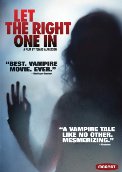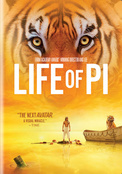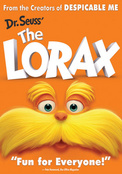Movie Review Library - L
|
Home
/ Latest Reviews / Review
Library |
Make sure you see the Latest Video Reviews page as well!
 |
|
 |
Ladder 49 (2004) |
 |
Lady Vanishes, The (1938) |

|
The Lake House (2006) |
 |
Land of the Dead (2005) |
 |
Lantana (2001) |
 |
The Last Boy Scout (1991) |
 |
The Last Breath (Le Dernier
Souffle) (Quebec - 1999) |
 |
The Last Castle (2001) |
 |
Last Holiday (2006) |
 |
Last Hurrah for Chivalry (1978) |
 |
The Last King of Scotland (2006) |
 |
The Last Man on Earth (1964) |
 |
Last Night (1998) |
 |
The Last Samurai (2003) |
 |
The Last Tunnel (Le Dernier Tunnel) (Quebec - 2004) |
 |
Laura (1944) |

|
Law Abiding Citizen (2009) |
 |
*Classic* Lawrence of Arabia (1962) |
 |
Laws of Attraction (2004) |
 |
Layer Cake (2004) |
 |
The League of Extraordinary Gentlemen (2003) |
 |
A League of Their Own (1992) |

|
Leatherheads (2008) |
 |
The Left-Hand Side of the Fridge (La Moitié gauche du frigo) (Quebec - 2000) |
 |
Legacy of Rage (Hong Kong - 1986) |
 |
Legally Blonde (2001) |
 |
The Legend of Bagger Vance (2000) |
 |
The Legend of Rita (Germany - 1999) |
 |
The Legend of Suriyothai (Thailand - 2003) |

|
The Legend of Zorro (2005) |
 |
The Legend of Zu (Hong Kong - 2001) |
 |
Lethal
Weapon
(1987) |
 |
Lethal Weapon 2 (1989) |
 |
Lethal Weapon 3 (1992) |
 |
Lethal Weapon 4 (1998) |
 |
Lemony Snicket's A Series of Unfortunate Events (2004) |
 |
Letters from Iwo Jima (2006) |
 |
Let the Right One In (Sweden -
2008) |
 |
Liar Liar (1997) |
 |
The Life Aquatic with Steve Zissou (2004) |

|
Life of Pi (2012) |
 |
|
 |
The Limey
(1999) |

|
Lincoln (2012) |
 |
The Lion King (1994) |
 |
The Lion King 1 1/2 (2003) |
 |
The Little Mermaid (1989) |
 |
A Little Princess (1995) |
 |
Little
Voice
(1999) |
 |
Live and Let Die (1973) |
 |
The Living Daylights (1987) |
 |
Living
in Oblivion
(1995) |
 |
Lone Wolf McQuade (1983) |
 |
The Longest Nite (Hong Kong - 1997) |
 |
The Longest Summer (Hong Kong - 1998) |
 |
The Longest Yard (2005) |
 |
Mémoires affectives (Looking for
Alexander) (Quebec - 2004) |
 |
Looney Tunes: Back in Action (2003) |

|
Looper (2012) |

|
Dr. Seuss' The Lorax (2012) |
 |
|
 |
The Lord of the Rings: The Two Towers (2002) |
 |
The Lord of the Rings: The Return of the King (2003) |
 |
Lord of War (2005) |
 |
Lost and Delirious (2001) |
 |
Lost and Found (Hong Kong - 1996) |
 |
Lost in La Mancha (2003) |
 |
Lost in Space (1998) |
 |
|
 |
The Lost
World: Jurassic Park (1997) |
 |
Love Actually (2003) |
 |
Love for All Seasons (Hong Kong - 2003) |
 |
The Lovely Bones (2009) |
 |
|
 |
Lovers of the Arctic Circle (1998) |
 |
Love Story (1970) |
 |
Lucky Number Slevin (2006) |
|
Home
/ Latest Reviews / Review
Library |